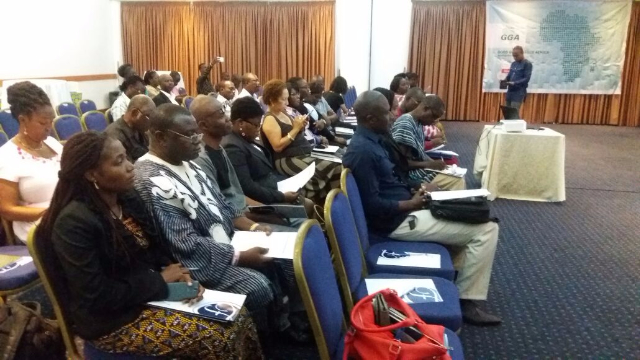Good Governance West Africa a governance and policy NGO is expecting to implement a new educational pilot initiative to provide unique solutions to kindergarten education in the Central Tongu district.
KEYY is to improve the level of kindergarten education for four to six olds. KEYY is the acronym for Kindergarten, Education, Yardstick and Yields.
KEYY is the result of a research into kindergarten education captured in the document "Ground Zero: Ameliorating Strategies for KG Education in Ghana."
According to the Executive Director of the NGO, Linda Asante Apeatu, the research commissioned by her organisation is to identify gaps in the implementation of the Ghana Education Service (GES) policy regarding KG education and ways to develop other unique strategies or ideas to ensure full implementation of the policy.
Lead researcher, Ekem Amonoo-Larson presented the findings of the research at a workshop on Tuesday.
He explained that the research is to "Bring renewed thinking to current policy related to teaching at the kindergarten level in the local language and English as well as bringing the private sector on board to support kindergartens and trained teachers particularly at the district level."
The Basic Education representative from the GES, Samuel Ntow, welcomed NGO’s effort to contribute to knowledge sharing in the basic education sector.

He indicated that the service remains open to more collaboration to implement policy and improve education.
One of the key findings of the research reinforced the GES policy of local language instruction for children depending on their peculiar location.
During the open forum, there was a heated debate over the viability of the policy.
However, Mr Amonoo-Larson urged that Ghanaians remove misconceptions about local language instruction at the kindergarten level and consider it as a tool to learn from the known to the unknown.
Board Chairman of Good Governance West Africa hailed the research work which provides a basis for an enterprise to consider where to invest in the future of Ghana’s children.

